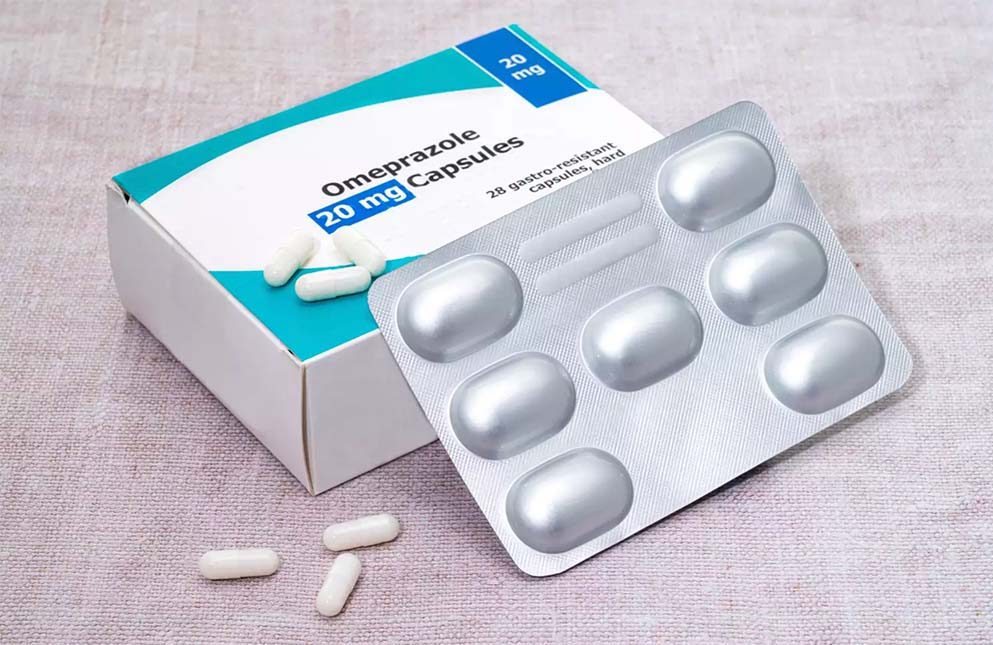Helicobacter pylori (H. pylori) is a spiral-shaped bacterium that colonises the stomach lining and is a leading cause of gastrointestinal issues. Discovered in 1983, it is now recognised for its role in conditions such as gastritis, ulcers, and gastric cancer. But did you know that despite its prevalence, many people with H. pylori remain asymptomatic, making it a silent threat to gut health?
Functional medicine offers a comprehensive, root-cause approach to diagnosing and managing H. pylori.
In this guide, we explore the bacterium’s impact, testing methods, and treatment strategies from a functional medicine perspective.
In the UK, approximately 40% of the population carries H. pylori, with rising cases among younger adults.
What is H. pylori and How Does it Affect Gut Health?
H. pylori survives the stomach’s acidic environment by producing urease (enzyme that catalyses the hydrolysis of urea into ammonia and carbon dioxide) which neutralises stomach acid and allows it to damage the stomach lining.
Common Health Issues Linked to H. pylori:
- Gastritis: Inflammation causing discomfort and bloating.
- Peptic Ulcers: Open sores in the stomach lining, leading to pain and nausea.
- Gastric Cancer: Increased risk from prolonged inflammation.
- Dysbiosis: Disruption of the gut microbiome, affecting digestion and immune function.
Signs and Symptoms of H. pylori Infection:
- Abdominal pain or discomfort
- Acid reflux or heartburn
- Chronic fatigue (due to nutrient deficiencies)
- Bloating and burping
- Loss of appetite
- Nausea or vomiting
The Gut-H. pylori Connection:
- Alters gastric acid production, contributing to poor digestion and bacterial overgrowth.
- Impairs absorption of nutrients like iron, B12, and magnesium.
- Promotes gut permeability (leaky gut) and disrupts the microbiome.
Book a Free Discovery Call
Discuss your health concerns with one of our expert practitioners and find out how personalised functional medicine can get your health on the right track.
The Role of Proton Pump Inhibitors (PPIs) in H. pylori Management
What Are PPIs?
Proton pump inhibitors (PPIs), such as omeprazole and lansoprazole, aid H. pylori treatment by reducing stomach acid production, creating a more favourable environment for antibiotics to work effectively. Lowering acidity enhances the absorption and efficacy of antibiotics, improving the chances of eradicating the infection.
Additionally, by reducing irritation in the stomach lining, PPIs also help promote the healing of ulcers caused by H. pylori. This combination of acid suppression and enhanced antibiotic performance makes PPIs a key component of standard triple or quadruple therapy for H. pylori infections.
What Are The Risks of Long-Term PPI Use?
While proton pump inhibitors (PPIs) are effective in H. pylori treatment, long-term use can pose several health risks. Gut microbiome imbalance is a common concern, as reduced stomach acid allows harmful bacteria to overgrow, increasing the risk of infections such as Clostridioides difficile.
Additionally, sudden discontinuation of PPIs can cause rebound hyperacidity, where the stomach produces even more acid, leading to worsened symptoms. Prolonged use has also been linked to nutrient deficiencies, particularly in vitamin B12, magnesium, and calcium, which can contribute to bone fractures and neurological issues.
Moreover, antibiotic resistance may develop if PPIs are used inappropriately alongside eradication therapies, reducing treatment effectiveness. Therefore, long-term PPI use should always be monitored by a healthcare professional.

Functional Medicine Testing for H. pylori
Why Testing Matters
H. pylori symptoms can overlap with other conditions, making accurate testing essential. Functional medicine testing looks beyond standard detection to assess overall gut health.
Common Tests:
- Urea Breath Test: Measures exhaled carbon dioxide after ingesting a urea solution.
- Stool Antigen Test: Identifies H. pylori antigens in the stool.
- Endoscopic Biopsy: Collects tissue samples for microscopic examination.
Functional Medicine Health Tests:
- GI-MAP Test: A comprehensive stool analysis providing insights into bacterial imbalances, inflammation markers, and digestive function.
- Organic Acids Test: Offers clues to gut bacteria imbalances and yeast overgrowth.
For more information on our range of functional tests, how they work and how you can book a test, visit our Functional Medicine & Testing page.

The Functional Medicine Approach to Treatment
Why Personalised Care Matters
Functional medicine addresses more than just H. pylori — it evaluates your entire gut ecosystem. Personalised testing and treatment ensure the infection is resolved without compromising overall gut health.
Conventional vs. Functional Medicine:
- Conventional: Typically involves antibiotics and PPIs.
- Functional: Combines antimicrobial protocols with natural gut healing strategies.
Functional Medicine Treatment Protocols:
- Dietary Interventions: Personalised food plans that emphasise anti-inflammatory foods and limits irritants like alcohol and spicy foods.
- Targeted Supplements: Such as deglycyrrhisinated licorice (DGL), mastic gum and probiotics are known for H. pylori suppression and microbiome support.
- Lifestyle Adjustments: Stress management and quality sleep to support healing.
For more information on our personalised health protocols and how you can get started, visit our How It Works page.
Book a Free Discovery Call
Schedule a consultation with our functional medicine expert to uncover the root cause of your symptoms and receive a tailored treatment plan.
YOUR HEALTH. YOUR CHOICE.
H. pylori is a prevalent but manageable infection that significantly impacts gut health. A functional medicine approach integrates comprehensive testing, dietary interventions, and gut-supporting nutrients to address the infection and promote healing. By adopting a balanced diet and incorporating gut-friendly nutrients, individuals can support digestion, reduce symptoms, and restore gut balance naturally, particularly if there is lingering disruption after use of PPIs.
At Nutrition Diets Clinic, our functional medicine approach goes far beyond generic advice to consider your unique genetic makeup, diet, environmental exposures, lifestyle factors, and health history.
1) Expert one-to-one therapy
2) Personalised nutrition and lifestyle plans
3) Easy, at-home functional testing
We understand that starting a journey toward improved health can sometimes feel daunting, but our team of qualified professionals are here to provide expert guidance and support throughout your journey.
We offer thorough clinical assessment and therapy via convenient online consultations. Getting started is simple and free, so why not take charge of your health today with our evidence-based strategies?
